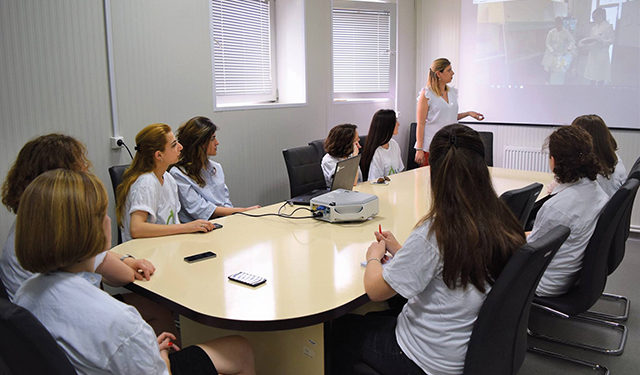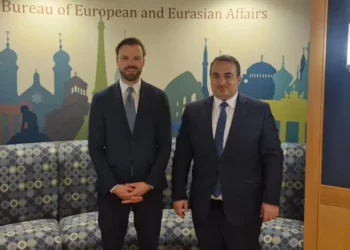The story of Georgia is like a bestselling thriller intrigue, keeping the pot boiling from cover to cover: as one protest ends in the street, be ready for another the next afternoon; when one celebrity is taken into custody, behold, there goes another one to the reformatory; as soon as one scandal of a personal nature explodes on our ever-shimmering television screens, there starts brewing another, even a more rousing one. This and other samples of our societal ups and downs fill our informational space on an everyday basis, so much so that the overall impression, formulated from what we read, hear and see via the media, is that the country has stopped moving, all is hopelessly bad, and the nation is on the verge of a catastrophe, expected to crash on our poor heads in any possible twinkle of an eye. The news pieces of the nation’s social, business, cultural, economic and industrial character have become sporadic in the realm of mass communication.
Meanwhile, believe it or not, the country is working, people tend to be creative, and the youth is trying to live up to contemporary demands and expectations. Only we, the regular folks, know nothing about it! One of the clearest examples of the nation’s movement forward with promising research potential and a considerable scientific bottom-line is the fact that the Georgian Academy of Natural Sciences (GANS), headed by its president, Professor Paata Kervalishvili, in collaboration with the Georgian Young Scientists’ Association (GYSA), has formed a group to support women in research and science, which is led by young bio-medical geneticist Anna Kekelidze. The support group for female scientists includes the women who work in various fields of science, and are experts in research and technology, social science or legal matters. The team is focused on developing socially beneficial strategies, and improving the research skills of women, which has been recognized as one of the strongest national priorities.
Women in Georgia remain a minority in science and technology. The number of Georgian women in research and development is far behind the EU and US, where women make up 33% of researchers in this field. Incidentally, in the former soviet bloc countries, about 40% of researchers were women. This was a legacy of the consistent investment in education by the socialist governments that was in place until the early 1990s. Georgia’s current growth strategy is to enhance the socio-economic role of women. Consequently, the selection criteria for research grants, universities and other donors should take into consideration the proportion of women among teaching researchers.
Georgia is certainly taking a number of affordable measures to integrate young female scientists into its research and innovation strategy. However, the continued lack of representation of women at the top level of entrepreneurship and faculties, management and science decision-making indicates that we still have to go another mile. For instance, less than 10% of female membership in GANS might serve as a vivid corroboration of this appreciable piece of advice, but it is also true that Paata Kervalishvili and Anna Kekelidze have created a wonderful paradigm of generational cooperation in matters scientific and technological, benefitting the national progress. By the way, the democratic development which has become a household word in our freedom-of-speech-hungry Georgia, is something wonderful, but it is not everything. Scientific development might be even more important for the nation’s future. In a word, we need qualified labor more than politics of any degree and qualification.
In Georgia, if we hear a female voice on the radio, or see a female face on the television, they inevitably belong to either a politician or a journalist. We barely even know of the women in this country who are outstanding researchers, technologists, doctors, teachers, authors, translators, engineers, inventors or entrepreneurs. Meanwhile, these people are doing a great job, each of them in their own place, but media has little idea of their life and value, as if this nation has nothing else to do except politics. Well, be it as it is, but it is time to give preference to what matters more and deserves higher recognition. Laughing this off might turn this nation into a subject of cruel mockery someday.
Op-Ed by Nugzar B. Ruhadze














